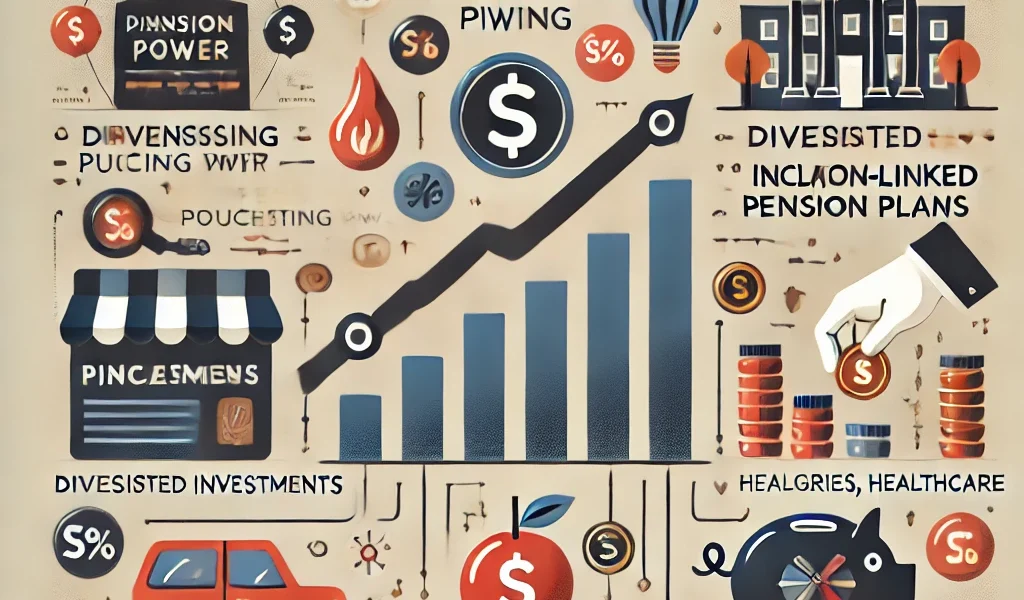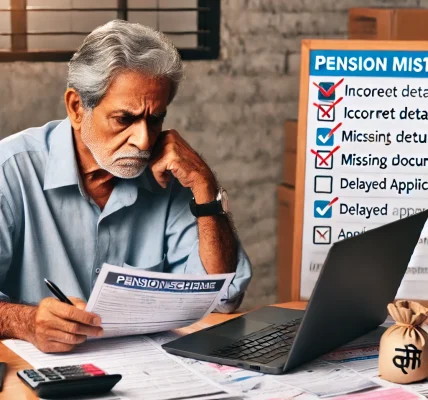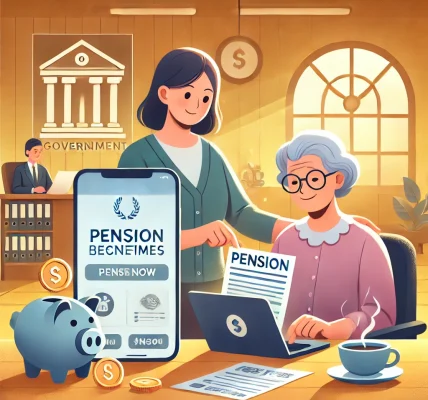Introduction
Pension savings are the financial backbone of a secure post-retirement life. However, one often overlooked factor that can significantly impact these savings is inflation. Inflation erodes the purchasing power of money over time, meaning the value of pension funds may not be as high in the future as they are today. This article explores how inflation affects pension savings and provides strategies to mitigate its impact.
Understanding Inflation and Its Impact on Pension Savings
Inflation refers to the general rise in prices of goods and services over time. As prices increase, the purchasing power of money decreases, which can be particularly concerning for retirees who rely on fixed pension income. Here are some key ways in which inflation affects pension savings:
1. Reduction in Purchasing Power
- A fixed pension amount that seems sufficient today may not cover the same expenses in the future due to increased living costs.
- For instance, if inflation is at 6% per year, an item costing INR 1,000 today will cost INR 1,790 in 10 years.
2. Higher Cost of Healthcare
- Healthcare expenses typically rise faster than the overall inflation rate.
- With advancing age, medical costs become a significant portion of a retiree’s budget, and inflation can make these costs unaffordable.
3. Increased Cost of Daily Essentials
- Expenses such as groceries, fuel, and housing continue to rise, making it harder for pensioners to maintain their standard of living.
4. Lower Real Returns on Investments
- If the return on pension investments is lower than the inflation rate, the real value of savings decreases.
- For example, if your pension fund earns 7% annually, but inflation is at 6%, the net real return is only 1%.
Strategies to Overcome Inflation’s Impact on Pension Savings
1. Choose an Inflation-Indexed Pension Plan
- Some pension schemes offer inflation protection, adjusting payouts according to inflation rates.
- Examples include government-backed pension plans like the Pradhan Mantri Vaya Vandana Yojana (PMVVY) and inflation-linked annuities.
2. Invest in Diversified Assets
- Relying solely on fixed-income pension plans may not be enough.
- Investing in stocks, mutual funds, and real estate can help grow savings and beat inflation.
3. Opt for Government Pension Schemes with Cost-of-Living Adjustments
- Some government schemes periodically increase pension payouts to adjust for inflation.
- The Employees’ Pension Scheme (EPS) and some state pension plans offer periodic hikes.
4. Increase Contributions to Pension Funds
- Regularly increasing pension contributions ensures a larger retirement corpus.
- Contributing more towards the National Pension System (NPS) or EPF (Employees’ Provident Fund) can help secure a higher pension payout.
5. Consider Investing in Gold & Commodities
- Gold has historically been a good hedge against inflation.
- Allocating a portion of retirement savings to gold or commodities can provide protection against inflation.
6. Create a Retirement Budget with Inflation Considerations
- Factor in expected inflation rates when planning post-retirement expenses.
- Using online retirement calculators can help estimate future financial needs.
7. Utilize Tax-Efficient Investment Strategies
- Take advantage of tax-saving pension schemes to maximize retirement savings.
- Schemes like the Atal Pension Yojana (APY) and NPS offer tax benefits under Section 80CCD of the Income Tax Act.
8. Work on a Part-Time Basis Post-Retirement
- Many retirees opt for part-time work, consulting, or freelancing to supplement pension income.
- This additional income helps mitigate inflation’s impact.
9. Consider a Systematic Withdrawal Plan (SWP)
- An SWP allows retirees to withdraw a fixed amount periodically while keeping investments growing.
- This method helps sustain savings longer while keeping up with inflation.
Conclusion
Inflation is an inevitable economic factor, but careful financial planning can minimize its impact on pension savings. Opting for inflation-linked pension plans, diversifying investments, increasing contributions, and utilizing tax-efficient strategies can ensure a comfortable retirement. Being proactive today will help retirees maintain financial security in the future, despite rising costs.
By staying informed and making strategic financial decisions, pensioners can safeguard their savings against inflation and enjoy a stress-free retirement.




